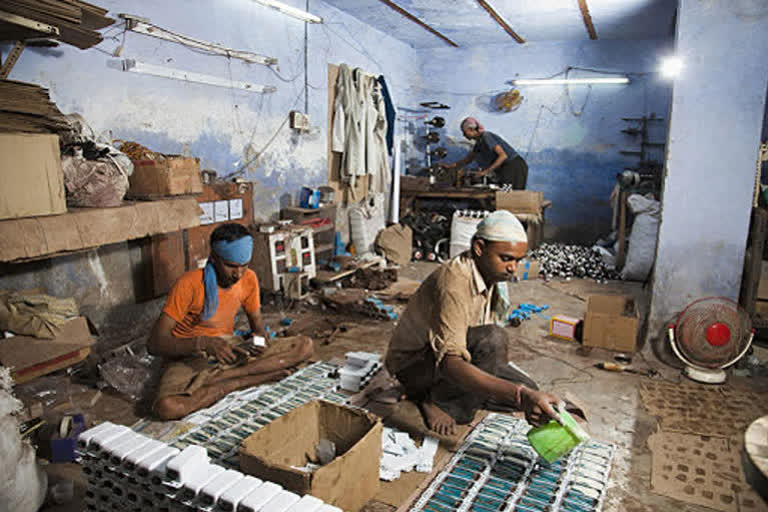Hyderabad: The latest report of the credit rating agency CRISIL reveals the serious effects of COVID-19 on the country's economy -- the corporate earnings may decline by 15 per cent while the gross domestic product (GDP) may decline by more than five per cent, further imposing a negative impact on small businesses.
It has already been about a month since the unveiling of the 'Atmanirbhar Abhiyan' special package and the assurance that it will provide a great boost to the Micro, Small & Medium Enterprises (MSME), which have been struggling to pay even salaries to their staff.
Union Finance Minister Nirmala Sitharaman had directed the public sector banks a week ago to take all possible precautions to prevent shortage of funds for small businesses. She even advised the banks to relax the regulations to the extent possible.
An official statement also was released two days back on behalf of the banks that the process of fulfilling the needs of the MSME sector has been sped up. The CRISIL's analysis that there is a danger to the existence of the small scale industries unfolds a grave situation.
Seized with the gravity of the situation, the Confederation of Indian Industry (CII) recently announced a phased ten-point plan of action for the economic revival of the country. One of the highlights is the need for positive reforms for investment and increasing demand for cash flows.
The CRISIL study, that the Reserve Bank and the Finance Ministry have so far failed to address such demand, highlights the need for immediate corrective measures.
Read: Keep China out of government procurement: Ajay Dua
The renowned Moody's believes that the central government’s special package cannot stabilize the small businesses that have been under intense pressure for over a year and a half now -- even before the pandemic's effect started. Though the government declared that its stimulus will help 10 per cent growth of the GDP, the analysis of Fitch Ratings Firm that the monetary aspect of the stimulus does not exceed ten per cent, evaluates the reasons for falling short of the expected economic revival.
The minimum interest rate for emergency loans of Rs 3 trillion for small businesses is 9.25 per cent and the maximum is 14 per cent. The confirmed rate for management capital term loans is 7.5 per cent. If the payment period is extended beyond ten years by not exceeding the interest rate of 3 to 4 per cent, it will be a big boon for the small firms.
Requests to postpone MSME Goods and Services (GST) payments until the COVID crisis is alleviated have fallen on deaf ears. Due to the special preference that Germany provides to its Mittelstand (MSME) companies, they are able to create employment opportunities of up to 60%.
Read: Muslim body issues fatwa for boycott of Chinese goods
The interest shown by the Singapore, New Zealand and Japan governments by focusing their attention on the availability of funding for small industries, marketing facilities, and creative digital technology, is creating wonders there.
Prime Minister Modi wants to create opportunities from the Corona crisis by giving a big boost to the manufacturing sector and lift India to new heights. At least now the exercise to help the small industries in a big way must be speeded up.
The required stimulus must be provided for the investments needed on emergency basis by the small scale sector, spare parts manufacturing units, ambitious skilled entrepreneurs, etc., before they are frustrated and forced to close their business.



